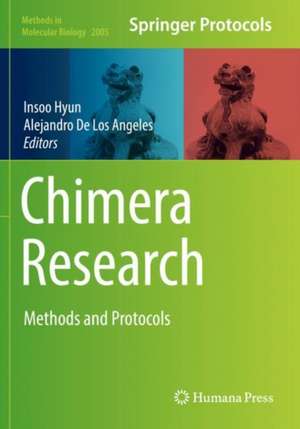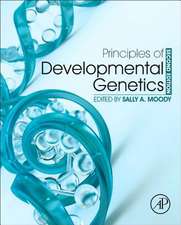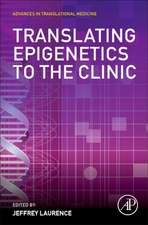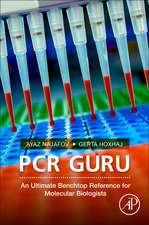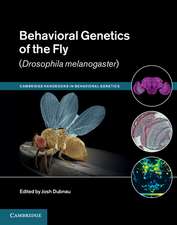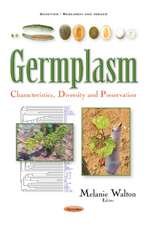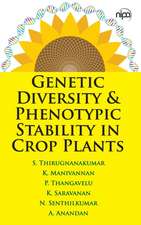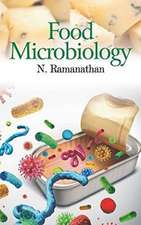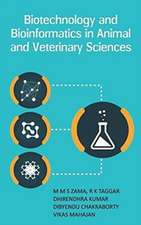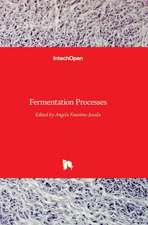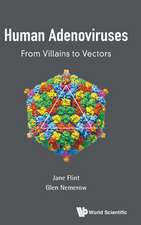Chimera Research: Methods and Protocols: Methods in Molecular Biology, cartea 2005
Editat de Insoo Hyun, Alejandro De Los Angelesen Limba Engleză Paperback – 14 aug 2020
Cutting-edge and thorough, Chimera Research: Methods and Protocols is a valuable resource for scientists interesting in using chimeras as a research tool while also taking into consideration their complex ethical scopes.
| Toate formatele și edițiile | Preț | Express |
|---|---|---|
| Paperback (1) | 625.86 lei 38-44 zile | |
| Springer – 14 aug 2020 | 625.86 lei 38-44 zile | |
| Hardback (1) | 888.70 lei 38-44 zile | |
| Springer – 8 iun 2019 | 888.70 lei 38-44 zile |
Din seria Methods in Molecular Biology
- 9%
 Preț: 791.59 lei
Preț: 791.59 lei - 23%
 Preț: 598.56 lei
Preț: 598.56 lei -
 Preț: 496.79 lei
Preț: 496.79 lei - 20%
 Preț: 882.95 lei
Preț: 882.95 lei -
 Preț: 252.04 lei
Preț: 252.04 lei - 5%
 Preț: 717.33 lei
Preț: 717.33 lei - 5%
 Preț: 719.11 lei
Preț: 719.11 lei - 5%
 Preț: 728.83 lei
Preț: 728.83 lei - 5%
 Preț: 734.57 lei
Preț: 734.57 lei - 15%
 Preț: 652.28 lei
Preț: 652.28 lei - 18%
 Preț: 1008.02 lei
Preț: 1008.02 lei - 5%
 Preț: 722.21 lei
Preț: 722.21 lei - 18%
 Preț: 898.77 lei
Preț: 898.77 lei - 15%
 Preț: 653.42 lei
Preț: 653.42 lei - 15%
 Preț: 643.10 lei
Preț: 643.10 lei - 18%
 Preț: 1390.83 lei
Preț: 1390.83 lei - 5%
 Preț: 730.10 lei
Preț: 730.10 lei - 20%
 Preț: 821.63 lei
Preț: 821.63 lei - 18%
 Preț: 955.89 lei
Preț: 955.89 lei - 15%
 Preț: 649.37 lei
Preț: 649.37 lei - 5%
 Preț: 725.98 lei
Preț: 725.98 lei - 18%
 Preț: 968.31 lei
Preț: 968.31 lei - 5%
 Preț: 720.93 lei
Preț: 720.93 lei -
 Preț: 392.58 lei
Preț: 392.58 lei - 5%
 Preț: 733.70 lei
Preț: 733.70 lei - 18%
 Preț: 946.42 lei
Preț: 946.42 lei - 23%
 Preț: 860.21 lei
Preț: 860.21 lei - 15%
 Preț: 641.66 lei
Preț: 641.66 lei - 5%
 Preț: 1037.69 lei
Preț: 1037.69 lei - 23%
 Preț: 883.85 lei
Preț: 883.85 lei -
 Preț: 792.16 lei
Preț: 792.16 lei -
 Preț: 423.62 lei
Preț: 423.62 lei - 5%
 Preț: 425.91 lei
Preț: 425.91 lei -
 Preț: 592.20 lei
Preț: 592.20 lei - 5%
 Preț: 345.62 lei
Preț: 345.62 lei - 19%
 Preț: 491.88 lei
Preț: 491.88 lei - 5%
 Preț: 1038.84 lei
Preț: 1038.84 lei - 5%
 Preț: 524.15 lei
Preț: 524.15 lei - 18%
 Preț: 2086.44 lei
Preț: 2086.44 lei - 5%
 Preț: 1277.30 lei
Preț: 1277.30 lei -
 Preț: 789.93 lei
Preț: 789.93 lei - 5%
 Preț: 1339.10 lei
Preț: 1339.10 lei - 18%
 Preț: 1366.79 lei
Preț: 1366.79 lei - 5%
 Preț: 752.66 lei
Preț: 752.66 lei - 5%
 Preț: 374.89 lei
Preț: 374.89 lei - 18%
 Preț: 1372.05 lei
Preț: 1372.05 lei - 18%
 Preț: 1110.57 lei
Preț: 1110.57 lei - 18%
 Preț: 1384.47 lei
Preț: 1384.47 lei - 18%
 Preț: 1105.93 lei
Preț: 1105.93 lei - 18%
 Preț: 949.98 lei
Preț: 949.98 lei
Preț: 625.86 lei
Preț vechi: 812.81 lei
-23% Nou
Puncte Express: 939
Preț estimativ în valută:
119.81€ • 123.22$ • 99.40£
119.81€ • 123.22$ • 99.40£
Carte tipărită la comandă
Livrare economică 15-21 februarie
Preluare comenzi: 021 569.72.76
Specificații
ISBN-13: 9781493995264
ISBN-10: 149399526X
Pagini: 234
Ilustrații: X, 234 p. 28 illus., 23 illus. in color.
Dimensiuni: 178 x 254 mm
Ediția:1st ed. 2019
Editura: Springer
Colecția Humana
Seria Methods in Molecular Biology
Locul publicării:New York, NY, United States
ISBN-10: 149399526X
Pagini: 234
Ilustrații: X, 234 p. 28 illus., 23 illus. in color.
Dimensiuni: 178 x 254 mm
Ediția:1st ed. 2019
Editura: Springer
Colecția Humana
Seria Methods in Molecular Biology
Locul publicării:New York, NY, United States
Cuprins
Frontiers of Pluripotency.- Highly Efficient Derivation of Pluripotent Stem Cells from Mouse Preimplantation and Postimplantation Embryos in Serum-Free Conditions.- Derivation of Hematopoietic Stem and Progenitor Cells from Human Pluripotent Stem Cells.- Cancer Stem Cells: Concepts, Challenges and Opportunities for Cancer Therapy.- Informed Consent Issues for Cell Donors.- Chick Models and Human-Chick Organizer Grafts.- The Engraftment of Lentiviral Vector-Transduced Human CD34+ Cells into Humanized Mice.- Pig Chimeric Model with Human Pluripotent Stem Cells.- Embryonic Chimeras with Human Pluripotent Stem Cells.- Neural Stem Cell Transplantation into a Mouse Model of Stroke .- Ethical Standards for Chimera Research Oversight.- Ethical Considerations in Crossing the Xenobarrier.- Neurological Chimeras and the Moral Staircase.- Isolation, Cryopreservation, and Transplantation of Spermatogonial Stem Cells.- Human-Monkey Chimeras for Modeling Human Disease: Opportunities and Challenges.
Textul de pe ultima copertă
This volume addresses challenging new questions surrounding stem cell-based chimera research. This book is organized into three parts: Part One provides readers with a summary of different human donor cell types. The chapters in this section discuss ways to evaluate new types of pluripotent stem cells; the derivation of naïve and primed pluripotent stem cells from mouse preimplantation embryos; and the ethical and regulatory complexities of informed consent for the procurement of somatic cells. Part Two discusses methods for generating chimeras. The chapters here look at chick models and human-chick organizer grafts; generating human-pig interspecies chimeras; and techniques for transplanting mouse neural stem cells into a mouse disease model for stroke. Part Three concludes the book with a look at ongoing ethical controversies and new scientific directions. Chapters in this part cover the ethics of crossing the xenobarrier; animal welfare; experimentation with spermatogonial stem cells; and cautious approaches to human-monkey chimera studies to further understand complex human brain disorders. Written in the highly successful Methods in Molecular Biology series format, chapters include introductions to their respective topics, lists of the necessary materials and reagents, step-by-step, readily reproducible laboratory protocols, and tips on troubleshooting and avoiding known pitfalls.
Cutting-edge and thorough, Chimera Research: Methods and Protocols is a valuable resource for scientists interesting in using chimeras as a research tool while also taking into consideration their complex ethical scopes.
Cutting-edge and thorough, Chimera Research: Methods and Protocols is a valuable resource for scientists interesting in using chimeras as a research tool while also taking into consideration their complex ethical scopes.
Caracteristici
Includes cutting-edge methods and protocols Provides step-by-step detail essential for reproducible results Contains key notes and implementation advice from the experts
